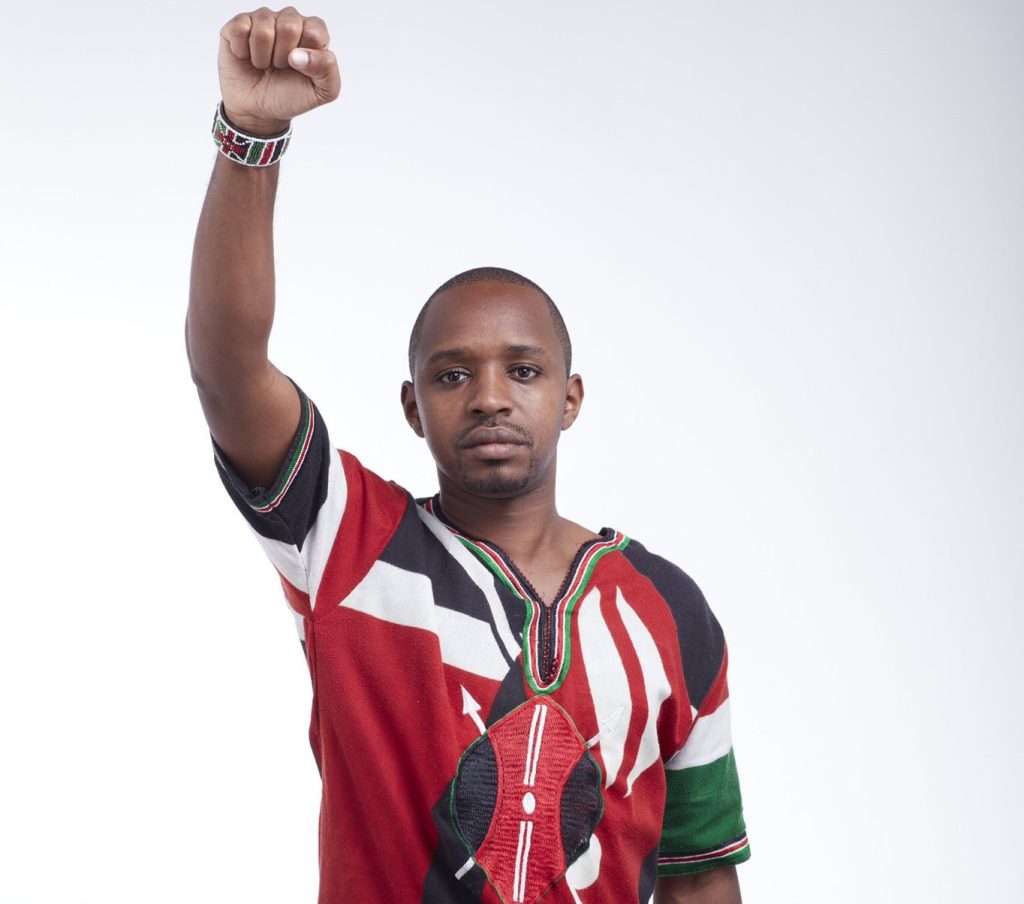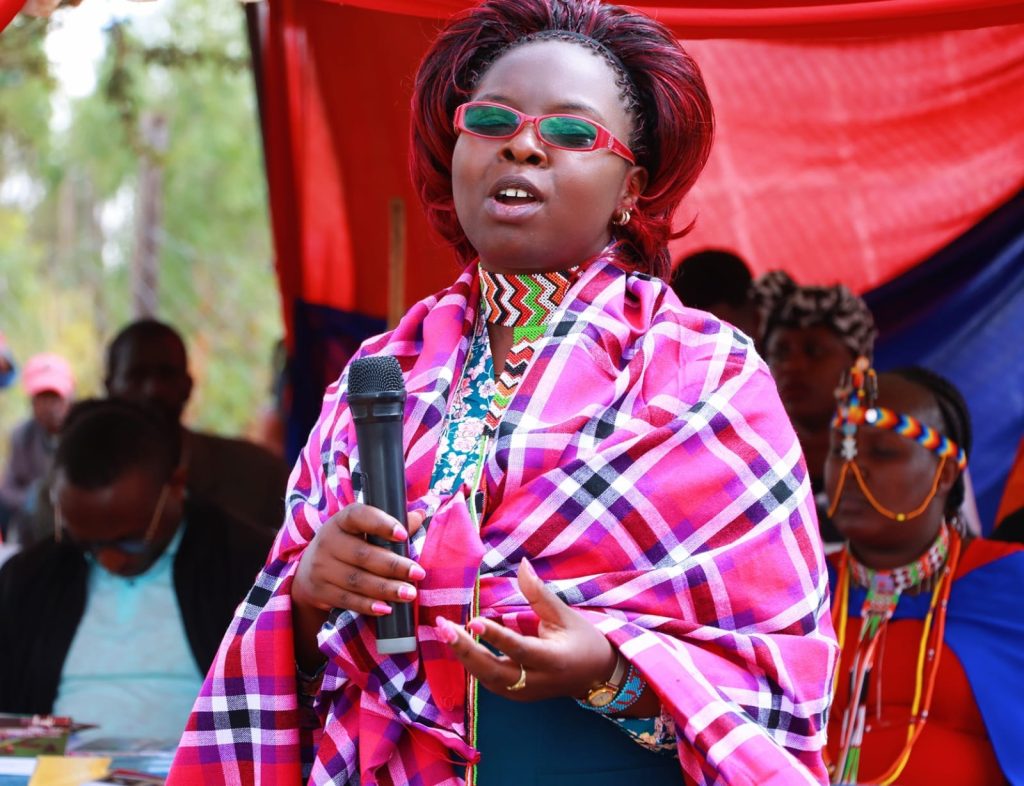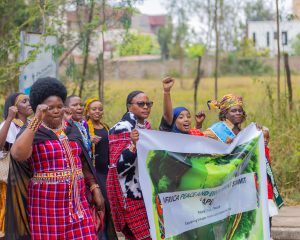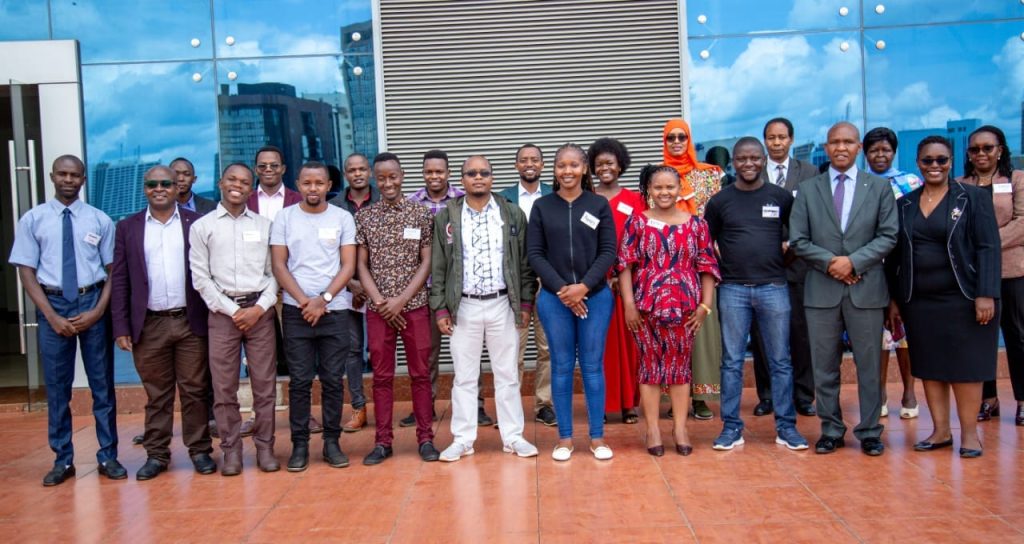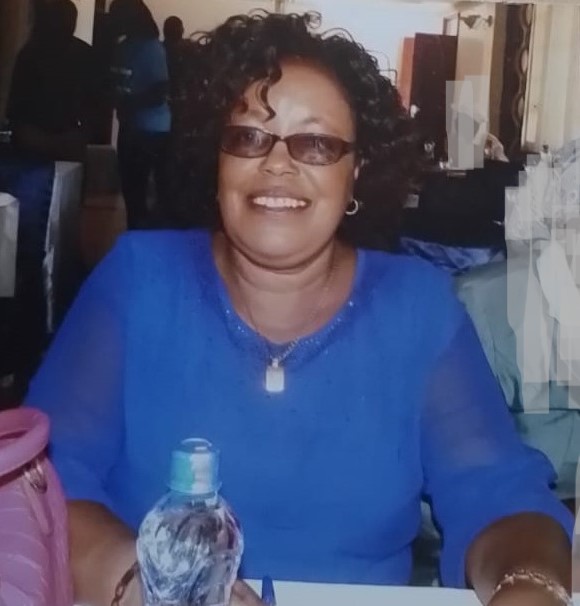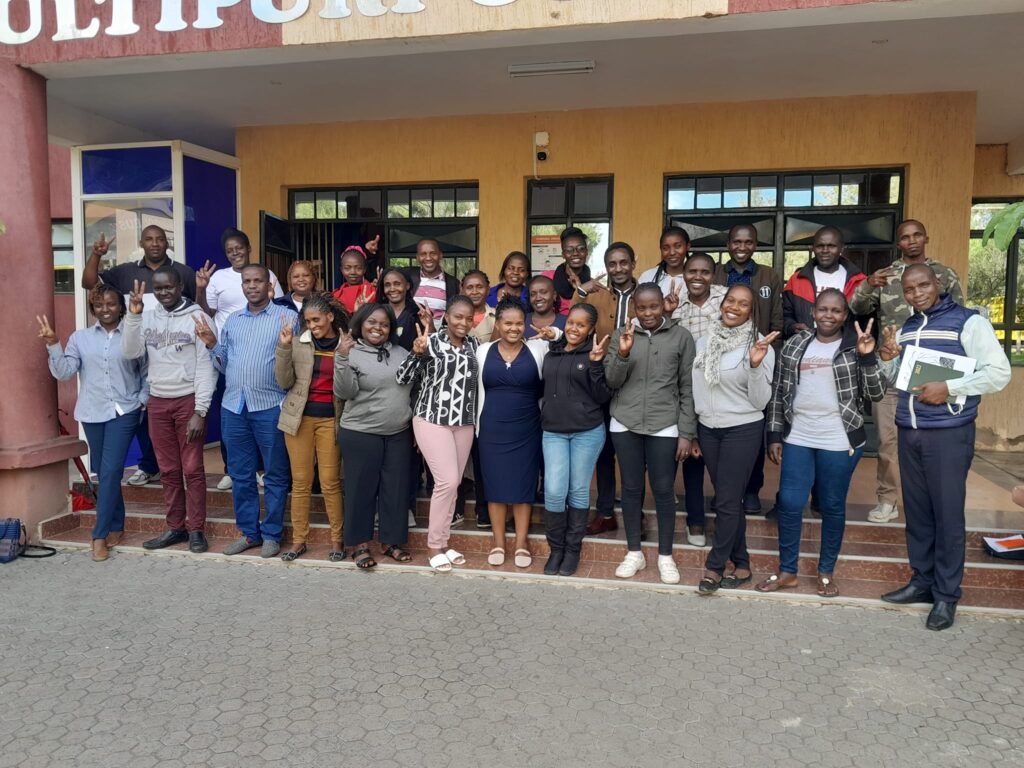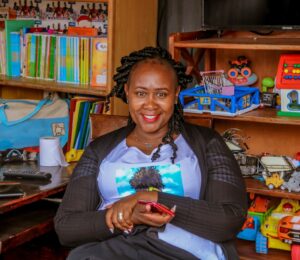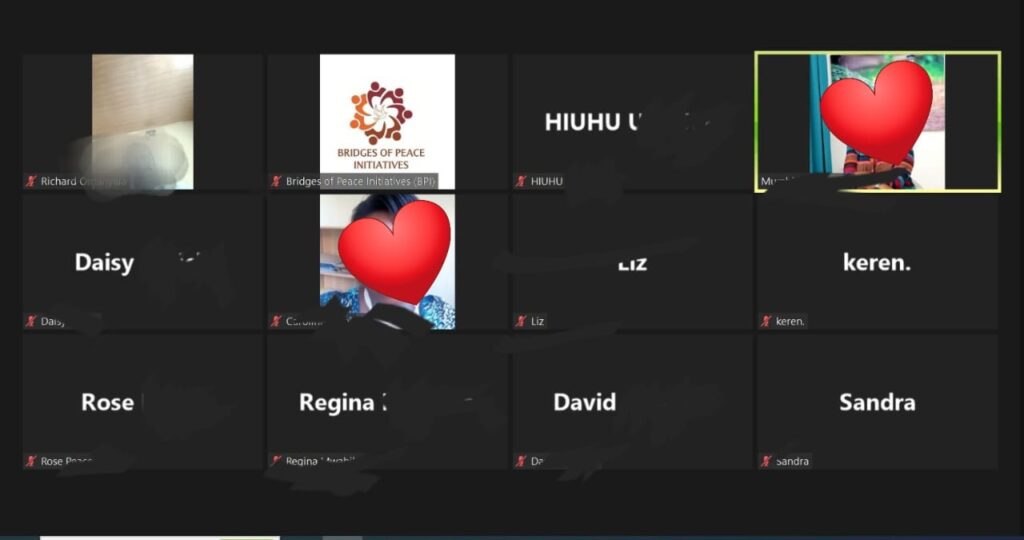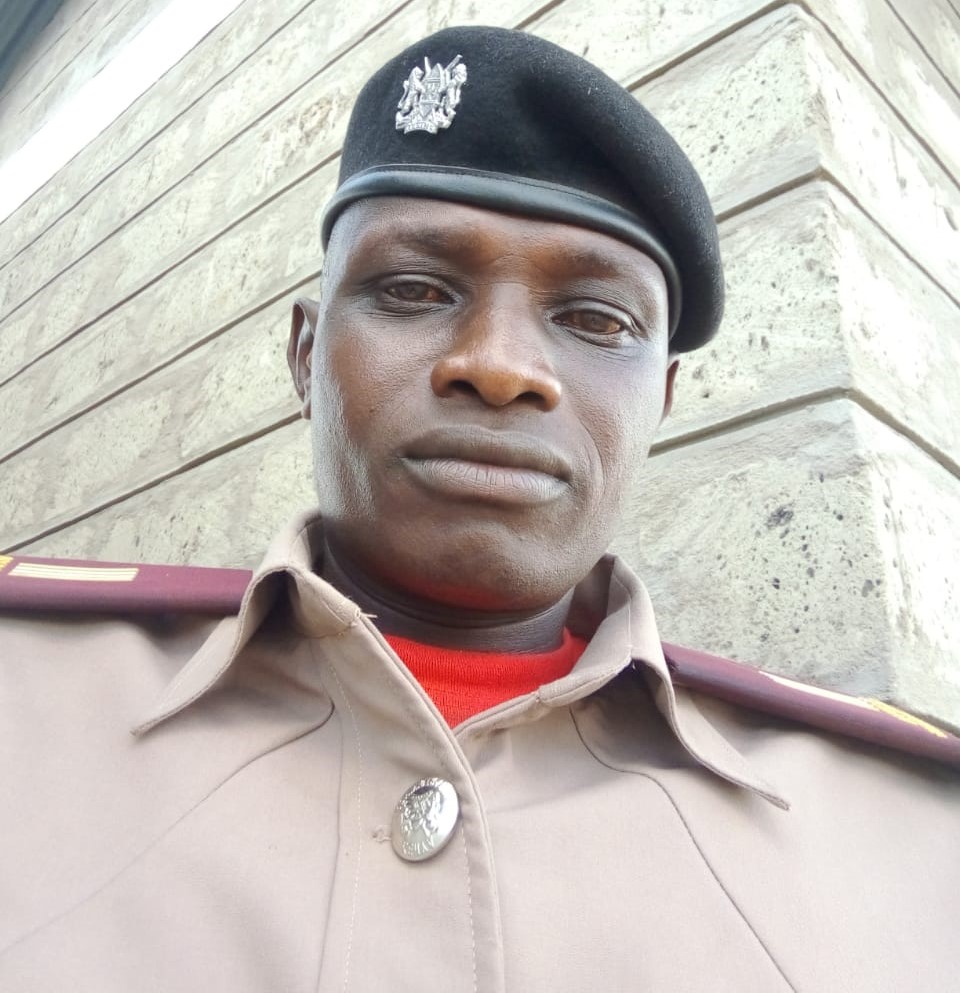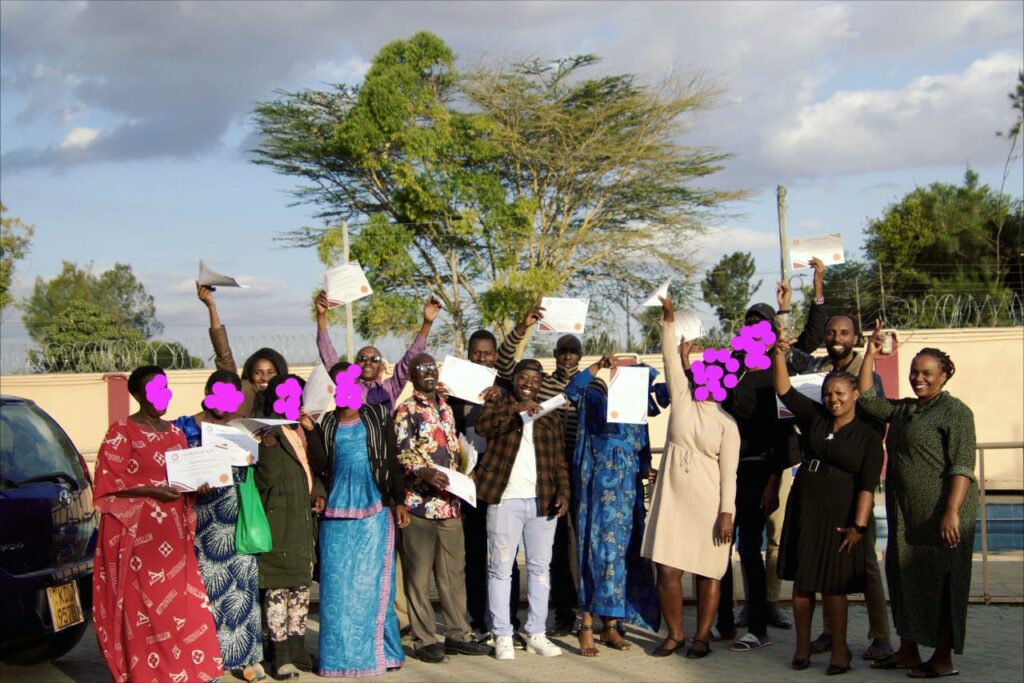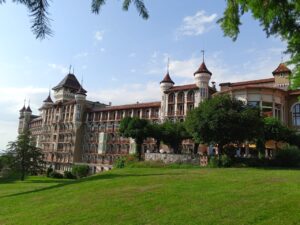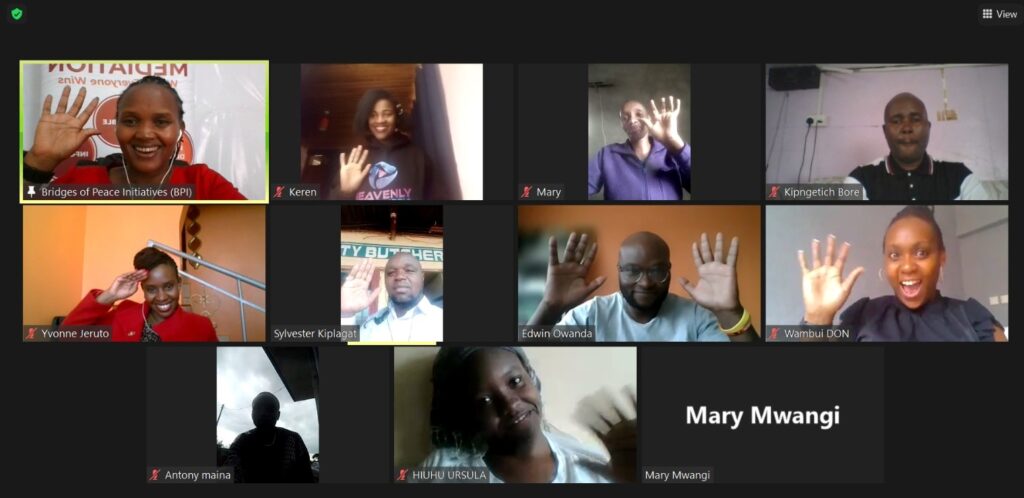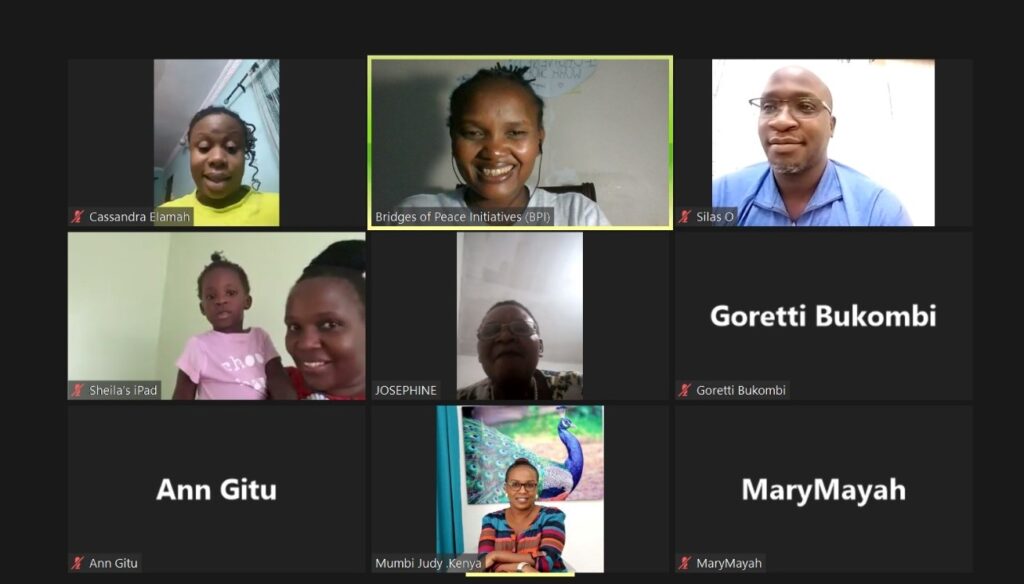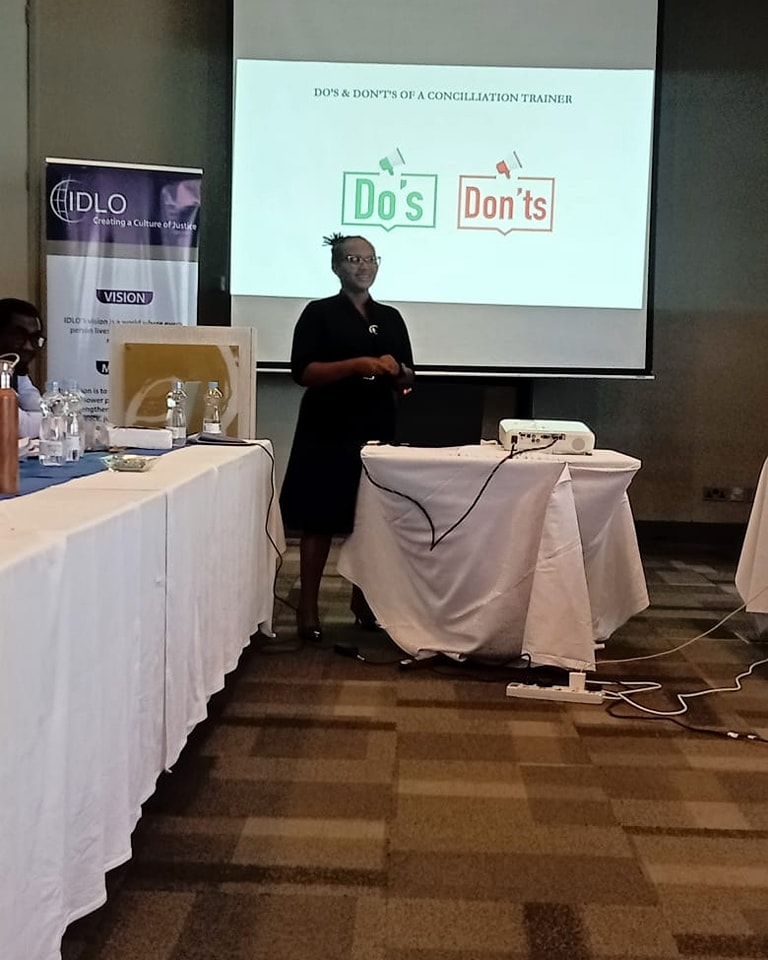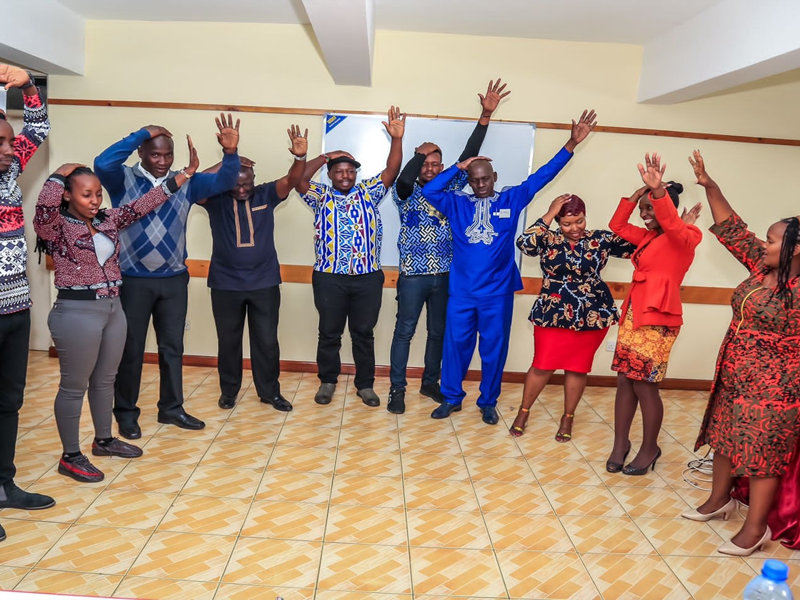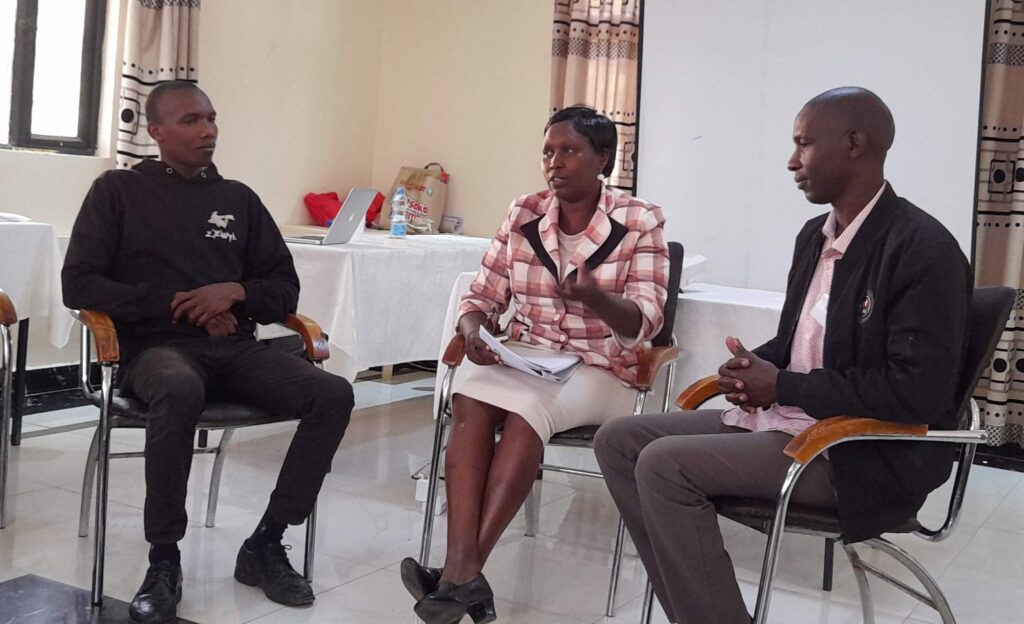News
September 3, 2024NewsBoniface Mwangi’s journey from photojournalist to fearless political activist in Kenya is a testament to his unwavering commitment to social justice and equality. Known for his bold stance against corruption and social injustice, Mwangi has become a powerful voice for change in a country where fighting corruption often means risking one’s life. Despite facing attacks, death threats, and even an explosion at his home, Mwangi stands firm in his pursuit of truth and justice. His courage and dedication continue to inspire a new generation of activists in Kenya, proving that one person’s bravery can indeed make a significant impact. Boniface Mwangi’s journey from photojournalist to fearless political activist in Kenya is a testament to his unwavering commitment to social justice and equality. Known for his bold and courageous stance against corruption and social injustice, Mwangi has become a powerful voice for social change in Kenya. In a country where fighting corruption almost equates to a death sentence, Boniface has continuously laid his life on the line. He has been attacked, sent death threats, had his house blasted with explosions, and endured many more harrowing experiences. But Boniface has always stood strong for truth. As he always says, he speaks the language of courage fluently. If indeed courage had a face, Boniface Mwangi would be it! He began his activism during the 2007-2008 post-election violence in Kenya. As a photojournalist, he captured harrowing images that exposed the brutal reality of the conflict, garnering international attention. Witnessing the violence and suffering firsthand profoundly affected him, igniting a passion for activism that would shape his future endeavors. Determined to make a difference, Mwangi founded Picha Mtaani, a traveling photo exhibition aimed at promoting reconciliation and healing in communities affected by the post-election violence.
His powerful images and compelling storytelling fostered dialogue and understanding, helping to bridge the divides that had torn the country apart.
Boniface’s activism soon extended beyond photography. In 2012, he launched PAWA254, a collaborative space for artists and activists to work together on social justice initiatives. PAWA254 has since become a hub for creative activism, empowering young Kenyans to use art and media to challenge the status quo and advocate for change. Despite facing numerous threats and intimidation, Mwangi has remained undeterred in his fight against corruption and impunity. In 2009, during a protest against government corruption, he was brutally assaulted by police officers, an incident that only strengthened his resolve. With his stance against corruption, his life is constantly under threat and has survived death many times. And even though he is a husband and a father to three kids, Boniface keeps on giving himself to this country over and over again. When random people phase injustices in Kenya, they reach out to him for support and help. He is always out there helping people who are being harassed by the system or being arrested unfairly. In 2017, Boniface took his activism to the political arena by running for a parliamentary seat in Starehe constituency in Nairobi. Although he did not win, his campaign demonstrated the power of grassroots activism. Boniface continues to use his platform to hold leaders accountable and advocate for the rights of ordinary Kenyans.
Boniface’s passion for good leadership and accountability has been instrumental in the recent fight against the Finance Bill 2024, which proposed tax increases that would burden the already struggling Kenyan citizens. Through relentless advocacy, public demonstrations, and strategic use of social media, Boniface has been at the forefront of opposing the bill. Even though the peaceful demonstrations were infiltrated by sponsored criminals, the pressure from Kenyan citizens led to the government withdrawing the contentious bill, showcasing the power of collective action and the impact of sustained activism.
Thank you so much, Boniface, for your relentless pursuit of justice despite the dangers you face every day. Thank you for loving this country, Kenya, so much that you are always putting your life on the line for it. Thank you for showing Kenya what courage and boldness look like and what they can do. Your efforts, Boniface, count and will keep on counting for generations to come. Your courage continues to inspire and mobilize a new generation of activists in Kenya, proving that one person’s courage and dedication can indeed make a significant impact.
We honor and celebrate you, Boniface Mwangi, for sticking your neck out for the public good! You are a true Kenyan hero! May you be blessed with so many healthy and wealthy years, that you may live to witness the fruits of your labour. [...]
September 3, 2024NewsPAIN TO PURPOSE: The Story of Kajuju Kimanthi
kajuju Kimanthi faced profound hardship when her husband died a year into their marriage, leaving her pregnant and vulnerable. Forced from her home by greedy in-laws, she battled depression for years before reclaiming her property through a tough legal fight. Motivated by her struggles, Kajuju dedicated herself to advocating for widows’ rights, founding “Together as One Kithurune” to support widows, combat gender-based violence, and oppose female genital mutilation. Despite significant challenges, her unwavering commitment continues to inspire and uplift countless women in need. Kajuju Kimathi’s life changed irrevocably when her husband died just one year into their marriage. She was three months pregnant at the time, and the loss was profound. Yet, her hardships were just beginning. Her in-laws, driven by greed, sought to claim the couple’s property, including a thriving farm with animals and agricultural products. The turmoil forced Kajuju to leave her home and seek refuge with her parents, where she stayed until she delivered her baby. The emotional and psychological stress pushed Kajuju into a deep depression that lasted for five long years. A concerned friend eventually guided her to counselling services, helping her reconnect with herself and rebuild her life. As she regained her mental strength, Kajuju decided to fight back against her in-laws’ harassment and took her case to court. The legal battle was taxing and expensive, but her perseverance paid off when the court granted her permanent rights to her husband’s properties.
Empowered by her victory, Kajuju began to think about other widows who might not have the support or resources to fight similar battles. She realized that in many African countries, widows face a double tragedy—they lose their husbands and their properties, and often face severe discrimination. Kajuju’s pain became her purpose. She resolved to use her experience to advocate for widows’ rights, ensuring that others wouldn’t have to endure what she had. She desired to offer to others the light she had hoped for during her time of turmoil. Her first outreach was in Samburu, a region known for its strong patriarchal traditions. Sharing her story with local widows, Kajuju found a deeply emotional and supportive community. The widows shared their experiences too, they cried together, and formed a bond over their shared struggles. This led Kajuju to establish “Together as One Kithirune,” an organization dedicated to advocating for widows’ rights. She formed two groups, one in her home area of Meru and the other in Samburu. Besides supporting the widows, her organization also gives focus on raising awareness about Harmful cultural practices like gender-based violence (GBV), early child marriages and advocating against female genital mutilation (FGM). Kajuju’s work, even though it bring her immense joy and fulfilment, it also come with significant challenges.
In patriarchal societies like Samburu, her advocacy is often faced with backlash from elders who don’t believe in women’s rights. One particularly harrowing case involved a 13-year-old girl forcibly married as a fourth wife to a 70-year-old man. When the man died a year later, the girl, now a widow at 14, was at risk of being inherited by her late husband’s brother. Kajuju fought fiercely for the girl’s right to education, despite facing intense community resistance. Her efforts paid off, and the girl returned to school, where she is currently in high school. It is a battle she has to fight over and over again risking her own life.Even though she is always doing this work from a place of passion and she is motivated by her own experience, and even though she is always using her own income and always asking her friends and family to make donations for the work, she expresses her pain when she is accused of receiving a lot of money from donors and ‘eating it’. This hurts her so much given the sacrifice she has to make.But even more painful for her, is when she gets rescue requests from widows in dire situations and not having the resources to execute the rescue. Despite these heartaches, she continues to do her best, driven by her commitment to making a difference.Kajuju Kimathi, through her tireless efforts, continues to give hope and a voice to countless widows, fighting for their rights and dignity.We are deeply proud of you Kajuju. We acknowledge your efforts and courage. You are a hero! We honour and celebrate you! Keep sticking your neck out for the public good! [...]
September 2, 2024News14th August 2024 marked day 3 of the Africa Peace and Environment Summit, and focused on the linkages between peace and environmental sustainability. Cognisant of the reality that Africa faces security threats and environmental degradation, the panelists and participants explored practical ways in which community-driven solutions can connect environmental care with peace-building efforts [...]
August 24, 2024News“Women as Frontrunners” was the theme for the APES Women’s Day held on 13th August 2024, to celebrate women who are spearheading climate change mitigation. Equally, it was meant to encourage others to join the climate justice initiative and take up their role in formulating policies that advance climate stewardship. Bridges of Peace Initiatives (BPI) commits to continue championing for a sustainable environment that will promote peaceful coexistence. [...]
June 22, 2024NewsModule two was on Affirming and restoring human dignity through dialogue and inquiryRealizing how much our dignity has been taken away. The we took some time to affirm ourselves and restore our human dignity. We also took time to explore the ‘Treasures’ that we have in our communities that can help us restore our human wholeness and dignity. The participants shared the following points among others;
We need to decolonize our mind. Not everything Western is good and not every African is bad. We have a lot of indigenous knowledge and systems that are simply genius and we must love and embrace them!
Love ourselves and embrace who we are. Black people have good brains too. We shouldn’t feel like second hand citizens.
We reminded ourselves that we are all equal as human beings.
Despite the many challenges that surround us, we found a lot of treasures in our community and country;
Our National Anthem- which we used as our opening and closing prayers for the two days.
The cultural music and dance – they unite us in a very special way. We can always dance our problems out of almost any pain!
The cultural proverbs and riddles that carries a lot of lessons.
Story telling- the art of story telling was used by our forefathers to pass important cultures and values in the community.
Rites of passage like the circumcision of men as a way to transition to adulthood. For girls, look for alternative rites of passage- like older women guiding the younger ones.
Nature- we have the most beautiful sceneries, mountains, wildlife, rocks, amazing weather
Cultural Heritage- Our ethnic languages, traditional crafts, our cuisines, our unique cultures and beliefs
Our recognition and love for God. Even before the colonizers came, Kenyans new and believed God. The modern concept of God has been skewed in a way, but we are still a God loving nation.
Culture of Ubuntu- We unite and support each other in times of happiness and sadness. The concept is being overtaken by individualism, but we haven’t lost everything, we can reclaim our love and support for each other [...]
June 21, 2024NewsThe first day of the UNESCO Collective Healing Circles, Thursday 16th May 2024, brought together participants from different generations including student leaders from different departments in the University of Nairobi and some elders.
The participants, who were from different generations engaged in intergenerational dialogues and conversations on two key areas;
a) Exploring our common past and recognizing intergenerational colonial and slavery legacies and trauma
b) Affirming and restoring human dignity through dialogue and inquiry as Kenyans and Africans
Some key issues and concerns that came up on our shared history of colonialism include;
Colonialism entrenched our tribal divisions that continue to deeply divide us as a country today. Tribal hatred in Kenya is continuing disaster.
Inferiority Complex- Our Forefathers were dehumanized and made to feel inferior. Many years later, we still feel and act inferior to our colonizers. We still define ourselves through the eyes of our colonial masters. We can only be good or right enough if the Global North agrees with it. We have failed to appreciate our genius, our capacity, our indigenous wisdom, our black skin and our cultures.
Colourism- We suffered and continue to suffer discrimination because of our race. But even worse, we are doing the same thing to ourselves with colourism- with people, especially women, who are light skinned being considered more beautiful. Our standard of Beauty is defined through the lenses of our colonizers.
We have embraced the western religion- which was used to abuse, manipulate, exploit Africa and we are now using it, religion, to do the exact same things to ourselves.
Neo-Colonialism- Our leaders have taken over from the colonial masters and have perfected the art of modern colonialism. They now abuse, misuse, manipulate, discriminate, extort and exploit the citizens of Kenya. As PLO Lumumba said, “Colonialism is still very much alive, it has just changed colour and texture”.
Loss of Culture and Values- “We threw away the baby with the bath water.” We forgot to check and see which values and culture to hold dearly and not let go. [...]
April 15, 2024NewsBorn and raised in Nakuru County, Annie Gitu’s journey as a self-built community social worker and a peace creator began with a simple desire to make a difference in people’s lives. Despite facing her own challenges as a wife, mother, and grandmother, Annie’s heart has always been open to those in need around her. If a person is going through personal challenges, and their paths cross with Annie Gitu, or if Annie Gitu is informed about specific individuals or communities going through life’s challenges like lack of food, homelessness, lack of clothes to cover, a child not going to school, a family struggling because of sickness, she takes that burden in her heart. Annie Gitu will do anything within her means to try and give support to that individual or community.
You will always find Annie Gitu asking people to donate clothes and other household goods that she can distribute to people who need them. And she always leads from the front. When she is asking other friends to donate, her own donations are the first ones. After the 2007/2008 post-election violence in Kenya, Annie Gitu was on the forefront to visit the internally displaced people in their camps to give them hope, food and clothes. She was doing it in her own capacity and rallying others to join her. She is a compassionate leader. She believes that there is enough for everyone needs but not everyone’s greed.
If she needs to ride on a motorbike or a matatu (public buses) to go visit a sick person or deliver food or clothes, she does it with all the love and humility. With or without convenience, you can be sure for Annie Gitu to show up with courage and compassion. She once had a motorbike accident, that left her with a big wound, while going to reach women in Baringo with the message of peace. That never stopped her from being passionate to keep on serving humanity. Whether others join her or not, Annie Gitu never stops.
Because of her efforts, there are children that have been able to go back to church, there are families that had a meal to eat when they were on the verge of dying for hunger, there are people that have been clothed and their dignities protected, she has provided financial support to individuals who need transport to seek medical care, there are people who were hopeless and frustrated but she gave them moral, spiritual and physical support and they regained their hope to keep on fighting for their lives.
In addition, recognizing the importance of education in breaking the cycle of poverty, Annie Gitu took it upon herself to be sponsoring and supporting children from underprivileged families, covering their school fees, uniforms, and basic needs. She believes in the transformative power of education and that has inspired her to support the needy children, whenever she can with what she can, to ensure that a child has access to the opportunities they deserve.
As a facilitator with Creators of Peace Circles program in Kenya, Annie Gitu has reached out to many women in the interior villages helping them find inner peace and healing. But she has gone beyond and spearheaded peace in action initiatives that aim to uplift and empower the most downtrodden in her community of Mau Narok. One such initiative is the, “Touch a Life, Make a Difference,” which saw Annie Gitu and her fellow members pooling their resources to provide support to families facing sickness, hunger, and other hardships in Mau Narok. Their actions are not just about charity but about fostering a sense of peace, unity, social justice and solidarity within the community.
Even though she doesn’t have a regular income, it is normal for Annie to take the last of her coins or even borrow, to ensure a life is changed, a family is given hope a community is transformed. Her spirit of unselfishness and sacrifice, even when it means going without herself, is one to be admired and exemplifies her deep-rooted commitment to serving others.
At her age, Annie Gitu is supposed to be concerned about her retirement and saving as much as she can for her future. But Annie Gitu is always giving out for those who must also live today. She is hopeful that God will continue to provide for her in her retirement. It takes courage to not be afraid of how the future will be but doing what she feels called to do by God in the present.
Yet, with her boundless generosity came challenges. Many in the community assumes that Annie’s acts of kindness means she has an abundance of resources, leading to an overwhelming demand for her assistance. But Annie Gitu’s resources are very limited, and she often finds herself torn between helping as many people as possible and facing the disappointment of those she is unable to reach and help. People get offended when she is not genuinely unable to help and make all sorts of judgements and accusations. When these moments happen, they break her heart and make her doubt her work. At times she feels like giving up. But she doesn’t give up. She keeps doing what she can with what she has right where she is.
Annie Njeri Gitu, thank you for who you are in the world. Thank you for being a servant leader. Thank you for modelling unselfishness, love, empathy and compassion. We acknowledge your efforts and courage. You are a Giraffe Hero! We honour and celebrate you! [...]
February 10, 2024NewsIt was such an honour for Bridges of Peace Initiatives – BPI , through our Executive Director, Njeri Ndiangui, to partner with Dispute Management Centre (DMC), led by is CEO Seniour Counsel Mbuthi Gathenji, to run a full days workshop on ‘Out of Court Processes’ (OCP) with a special focus on Mediation. The event took place on 2nd Februay, 2024 in Kikuyu Town, Kiambu County and had been attended by among others; Lawyers, Mediators, Community Workers, Church Elders, Traditional Elders, Civil Servants and Business people. It was an opportunity to sensitize the participants on the different Out of Court Processes that are available to help people in conflict resolve their conflicts in constructive ways without necessary rushing to the courts as the first option. Different tools and systems that are embedded in the constitution and the Time and Institutional limitations were shared. Among the key OCP that were highlighted was Traditional Justice Systems, which should work within the acceptable legal frameworks as well as Mediation- which is taking strong roots in Kenya and has been fully embraced by the Kenyan Judiciary.
A very interesting conflict that is becoming a huge concern by most men in the area was shared- the intersection of Kikuyu cultural beliefs that are being propagated by the traditionalists and Christian values that have become the guiding light for many. It was clear that a dialogue was needed between the church and the Kikuyu traditionalists in Kiambu County to find a way of having the two find healthy ways of co-existing. Then there was the issue of inheritance that has brought so many conflicts in Kiambu county among family members because the young people are challenging their parents to give them their inheritance while they are still alive. Something the parents are not ready to do. Further, they shared of conflicts that have risen because there are lands that have “curses of not ever selling the land” attached to them. That brought a healthy conversation on the need to have “culture development” so as to reduce those kind of conflicts in the future. It was clear that more sensitization and empowerment on the use of OCP was critical in Kiambu County. The need to empower elders, who are always acting as ‘third parties’ in community conflicts, as professional mediators so as to support them with the right knowledge, tools, skills and techniques was quite evident. “Please make sure we have more of this kind of sessions. They are very enlightening and they will help us a lot as we handle the community conflicts” was a sentiment shared by most of the participants. [...]
January 29, 2024NewsThis is a story of a hero of the mind, James Musyoka, who comes from Wamunyu village. There is a saying that if you want to hide something from a Kenyan, hide it in books! It highlights a general lack of interest in reading books! Well, the saying could be a stereo type, but we can’t deny that there is some truth in it. But that statement is not true for the small village of Wamunyu, in Machakos County, because there, we have a village that reads! Against all odds, James has transformed this seemingly ordinary village into a community that embraces reading, providing its residents with intellectual fitness and exposure to the wider world. James’s impact over the past 22 years in Wamunyu has been nothing short of life-changing.
James believes that change begins from the mind and in his quest to see a brighter and better world for Kenyan people, coupled with the love for his community and the desire to connect the children of Kenya to the rest of the world, he birthed an organization called Kenya Connect, which has been changing the lives and the livelihoods of thousands of people across generations in Wamunyu village since 2002. James, who have had many opportunities to perhaps go enjoy living in a modern city with a lot of facilities and convenience, has chosen to live in the village with his family and make a significant contribution in transforming his village one life at a time, through education related programs.
It has been a long journey, with a lot of challenges in between, but for the last 22 years, James has kept the vision of making a difference in the lives of people of Wamunyu village alive by empowering their mind. He has been able to build a formidable team that work with him and make the dream work. He also has managed to create networks of partners and well-wishers that have bought into his vision and supported the life changing work of Kenya Connect.
From creating reading clubs in schools; to creating reading challenge where students read 25 books in 3 months; to empowering women and mothers through economic empowerment activities as well as creating reading, writing and storytelling programs which has improved communication between parents and children; to having Saturday Story Telling sessions for different age groups to empower their public speaking skills, confidence and self-expression; to having a Radio Read Aloud program through a local radio, which comes in very handy since many families in the rural areas have no access to televisions, electricity or internet. to the Community Library, with over 40,000 select books, that is available not just for the Village members of Wamunyu but to the neighbouring villages and many more!
The work that Kenya Connect is doing under the leadership of James Musyoka, is simply incredible! Wamunyu village could be like any other forgotten village somewhere in Kenya, but James has put Wamunyu village on the global map!
This journey has not been easy for Mr James Musyoka. Literacy is an expensive endeavor. He has had to spend a lot of time and sacrificed himself fully for this initiative. There is no question that James, giving 22 of his most energetic and productive age, for the public good at Wamunyu village, means taking a huge risk of foregoing the opportunity to establish a foundation for his future personal financial stability. He has, courageously, taken all that he is, all that he has, all his energy, knowledge and skills, not to build his private business and focus on securing his future and that of his family, but to make sure that Wamunyu village is transformed. That takes absolute unselfishness, courage, consistency, commitment, dedication and integrity.
This initiative has evidently led to the improvement of the literacy levels of the Wamunyu village members. Many of Wamunyu village members are now able to communicate better and connect with each other in ways that they couldn’t do before. The local Schools in Wamunyu village have witnessed and recorded better performance in national examinations. Students that take part in the different programs have shown immense improvement in their learning capabilities in class. Parents can now connect better with their children and students are gaining more confidence and courage to connect well with the world.
We at Bridges of peace Initiatives in partnership with Giraffe Heroes International acknowledge you Mr. James Musyoka. We see you. We acknowledge your efforts, sacrifice and commitment to turn Wamunyu village into a bright, better, beautiful and hopeful village. May your determination, passion and the unquenchable desire to see a difference in the lives of people continue to shine in your heart.
Thank you for sticking your neck out for the public good. James Musyoka, you are a hero, not just in Wamunyu village, but also in Kenya, and the world at large! We honour and celebrate you!
If only, we could get more James Musyoka’s in Kenya!
[...]
January 25, 2024NewsWhat a joy this was to run a Conflict Resolution Training for 30 participants from WhiteStars Group of Schools Leadership Team on 20-21 November, 2023 at the main campus in AthiRiver, Machakos County!!The Conflict Resolution Training cuts across both as a skills development activity as well as a team building exercise. The Leadership Team from the four campuses loved it! It was reflective, fun and transformative- not a very common combination.
Some comments from the participants:”I have participated in so many workshops and trainings, but I have never experienced what I have experienced in this training. It has been life changing.” “Does our president and vice-president know that we have people like you that have this much skills and expertise in peace building and conflict resolution? The work you are doing is so much needed in our communities and country.” “You have changed my life. I now have a totally different perception of conflict. I feel empowered to handle conflicts in more constructive ways.”It was two amazing days of both learning, transformation and fun. Thank you WhiteStars Group of Schools for giving us an opportunity to make a meaningful difference in the world. Your organisation, School, company, church…..any organised group of adults can also benefit from this kind of life changing trainings.Make this part of your 2024 goals!!!! You need….and we’ve got it!!! [...]
November 16, 2023NewsMeet Florence Makau, a 49-year-old mother to one hundred and six children. Only three are biologically hers. For the last ten years, Florence gave up everything to become the primary caregiver of hopeless and homeless street children who were roaming the streets of her hometown, Mavoko sub-county, Machakos County in Kenya. Her passion to care for the children was triggered by the desperation on the faces of the children she would meet in the streets every day as she went to run her business. The sight of the filthy, dirty children wearing tattered clothes, who looked hungry and tired, roaming and begging for food, was heartbreaking for her.
She tried to search for governmental shelters to house the children to no avail. Soon, her deep compassion for the children, coupled with her desire to see the children have a home and a decent life, pushed her to open up her home for the children. She says that when she realized that no one was trying to help them, she knew deep down in her heart that she was being called to make a difference and make change in the lives of those children by setting an example and being the change she desired to see.
With the zeal of a warrior and the heart of a mother, she opened the doors to her small apartment to the first eight children in 2014. She became their mother and provided them with the basic needs. As soon as the community got to know her work, they started bringing in more children. Even the local police usually bring children who have been abandoned or are suffering violence in their homes to her rescue center. With the growing number of children needing a home, she has been forced to move homes several times to accommodate them. They currently live in a slum-like area where she can afford to rent more rooms for the growing number of children.
With so many children under her care from all sorts of backgrounds, she couldn’t continue running her business. Florence decided to close her business to become a full-time mother to these children who knew no love or care. Some came to her very ill, others abused physically, emotionally, and even sexually, and she felt the need to personally nurse and support them in their journey of healing. It was not easy for her. She had chosen and embarked on a very tough journey in all aspects – physically, emotionally, and financially. She needed to constantly seek medical care, mental health support, and education for the children. Florence used her meager savings to help her cater to the needs of the children.
The toughest part of this journey for her has been sufficiently providing for these children. It has been a constant struggle. But she has remained committed to being their mother through all seasons. In the 10 years since she founded Bondeni Children’s Rescue Center, now known as Nuru Children’s Home, it has been her burden to love, care for, provide for, and protect the children. At some point, she had to sell the few assets she had acquired to help facilitate the center, the home to her over 100 children. Everyday is a step of faith. Without any consistent support to run the home and selling her assets to keep the home moving while not having a job to keep her financial health well established, she is risking the financial stability of her future. That takes courage and strength to take such a bold step.
For Florence, watching the children smile at her and call her “mom” with the warmest, most beautiful smiles touches her heart and makes all the sacrifices worth it! She is grateful to God for providing for the children through the voluntary services of a few well-wishers who support the children through donations. Her passion to love, care for, and provide for these children gives her a lot of fulfillment and energy to keep going. Florence has made saving these homeless children, giving them somewhere they can call home, and loving them as a mother her life’s mission. Helping those in dire need, especially these little ones with no power to protect themselves from predators and the harsh realities of life, has been deeply satisfying for her.
As of now, two of the children have graduated from university. One has already found a job and chose to continue living in the rescue center and use his salary to support his other ‘brothers and sisters’. Six of the children are in university, three are in college, five are clearing high school, and the others are in primary and kindergarten.
Florence, you are a Giraffe Hero!! A beacon of hope for the helpless and the hopeless. We see every sacrifice you’ve made, every tear you have shed, and every challenge you have faced and not given up. Your unwavering commitment to changing the lives of these children speaks volumes of your indomitable spirit. Thank you for selflessly dedicating yourself, not just to their present, but to their future. May your legacy forever shine brightly in the hearts of the children you have touched. And those you continue to touch. [...]
October 6, 2023NewsA forgiveness what?!
It sounds ridiculous at first. Like who needs a workshop to understand forgiveness! We know these things, right? WRONG..!!
Forgiveness is one of the most misunderstood concepts, and our recent workshop led by the exceptional facilitator, Njeri Ndiangui, peeled away layers of misconceptions about it. For six weeks in the months of August and September 2023, Njeri guided 10 participants through the complex subject of forgiveness with remarkable competence and diligence. Layer by layer, concept by concept she broke it down to chewable bites, while creating a safe space that allowed the participants to really reflect deeply on their personal journeys of Forgiving Others, Self-Forgiveness and Asking for Forgiveness. With understanding and compassion she guided the participant through the tough chapters of unravelling the well-hidden wounds and triggers, helping them pull down the veils we all wear to cover who we are and the pain we carry.
She introduced the Subject of FORGIVING OTHERS by expounding on what forgiveness is and what it’s not, the myths and misconception about it. At the beginning of the workshop there was a lot of suspicion about whether all wrongs can be forgiven. Forgiving others was not an easy way to begin the workshop but it’s the root that lays a strong foundation for forgiveness as a whole. One of the participants shared how they were sexually assaulted by a close relative when they were young and how that damaged her life. How her view of men changed and her trust issues with people including her own family began. “How do you begin to forgive such a person?”
Another participant travelled back to a wound that they have carried for many decades. One that still hurts afresh every time he thinks about it. “My mother was killed by her co-wife. She was given poison and since she was breastfeeding our little brother, he died out of the poisoning too. As if that is not enough, my step-mother went to head to kill 7 more siblings out of the twelve. No justice ever happened. And my step-mother lived for such a long time.” The participant shared. “I have carried this anger and pain for so long and it has stolen so much of my peace and happiness for so many years. Sometimes I unfairly take it out on my spouse and children. I feel I haven’t offered them my best due to my wounded and broken heart.” The participant continued and then asked with tears in his eyes; “Is this even humanly speaking possible to forgive?”
The facilitator allowed the participants to vent, to be angry at what made them hurt, to cry for all the reasons they needed to, she created a safe space for expressing all the emotions that came with the burdens people had carried for way too long in their hearts. Njeri reminded the participants that the forgiveness they were giving to those who hurt them was first and foremost for themselves. It was to help them take away the pain that held them hostage. She reminded them that forgiving those who hurt them didn’t in any way mean that what was done to them was right. The painful acts remain unjust and wrong by all means and they have right to be angry. “But why accept a right that will only destroy you some more and grab all your peace?” Njeri posed the rhetoric question. “Forgive them because you need your peace and happiness. Forgiven them not because they deserve it, but because you deserve your inner freedom to thrive!” Njeri added.
The freedom that comes from getting to that place where you say “I know what you did is not okay, right or fair. But I recognize that if I choose vengeance, I will be signing an oath that ties me to you to the end of time ,making me your prisoner. I don’t want to be held captive anymore. I choose forgiveness, I choose healing. I choose me over what you did.”
The subject of SELF FORGIVENESS, which many people rarely think about as far as forgiveness is concerned, was deeply explored. “We all screw up! We all fail. We make stupid mistakes. We have done things in our lives that we are deeply ashamed of. But that is part of being a human being!” said Njeri. “Living with guilt and shame can be very detrimental to our health. We must learn how to forgive ourselves. We must be ready to be compassionate, kind and empathetic with ourselves just like we do with others. We must learn how to be on our own side. How can you forgive others if you can’t forgive yourself? How can you love others if you can’t love yourself?” Njeri expressed.
One of the participants shared how they had to forgive themselves for not having loved themselves enough to respect their moral values and protect their self-esteem and wellbeing. “I hated myself and as such I would sleep around with people of the opposite gender. I am now healing.” they expressed themselves.
The participants all agreed that self-forgiveness was a fundamental key to opening the door for self-love and self-care, self-appreciation and self-affirmations. It is the very foundation to which self-value and growth thrives in.
Then came the subject of ASKING FOR FORGIVENESS, this too is a crucial part of the healing journey. Acknowledging that we have hurt others too is a bitter pill to swallow and a humbling experience. It is much easier to remember how much we have been hurt by others, and to remember nothing about how we have hurt others! But alas! We are human beings. And being human means that even the most careful person will at some point hurt another person either intentionally or unintentionally.
Asking for forgiveness requires us to look inward with a critical eye, to confront our past actions and their consequences, and to extend a genuine apology to those we’ve wronged. It is about demonstrating a profound willingness to change, to evolve into a better version of ourselves, and to mend the broken bonds of trust and connection that may have been shattered along the way. It’s a powerful act of self-reflection and an essential step toward finding inner peace, rebuilding peace and reconciliation with both others and ourselves.
“I took advantage of someone that was romantically interested in me. I wasn’t interested in them. But at some point when I was financially drained and my mother needed money for treatment, I asked the person for money. After I took the money, I blocked him and made sure he could never reach me. I look back and that was so wrong. I need to ask for forgiveness.” Shared one of the participants.
Another participants shared how they had been sidelining one of their colleagues at work. That she would even say hello to everyone else but not to that person. “Moving forward, I will change my behaviour towards them and be a better colleague. The don’t deserve that treatment.”
TAKEAWAYS
When the workshop was coming to end, some of the participants wished it could continue. But everything that has a beginning must have an end. They shared what the six weeks had meant for them, what they had received and how the workshop had re-shaped their lives;
“The safe space you created helped me in sharing deep issues that have wounded and burdened me for many years. I have been able to forgive people and issues I thought were unforgivable. I have been able to forgive myself and for the first time I am so refreshed and able to do my job with clarity, focus and passion. I am empowered to serve better. I am a better husband and a better father. I am so grateful to have taken part in this program. I feel at peace.
“This very week I applied the knowledge I have acquired here to resolve a case that has taken the courts and advocates more than 4 years to resolve and clearly there was no hope for a resolution but, in only two meetings with the parties involved, I was able to help them see reason, forgive each other and reconcile. Now a family is united again because I gained some strategic tools in this workshop. I’m confident I have gained the right tools and skills to serve people better. In my 35 years of service, this course has truly changed my perspective and my attitude.”
“In a time when mental health has become such a big issue in our community, I strongly feel that higher learning institutions should adopt this course to be part of their core courses to be taken by every student.”
“I am rejuvenated. These past 6 weeks have been terrific. This course is unmatched and it called for a lot of self-reflection. I have done a lot of self-discovery. I have allowed myself to face my fears; fears of rejection, and fears of being seen differently. There are people I carried for years in my heart and finally, I have been able to forgive them, really forgive them, and set myself free. I am truly happy with who I am right now even as the workshop comes to an end. I’m now okay with being vulnerable, I found my freedom and I can’t let it go. Thank you so much.”
“The workshop has opened my eyes. I need to forgive myself too. I never had thought that I could forgive myself. I have learned that it’s too high a cost carrying a baggage for too long while forgiveness is free, it will cost me less to forgive than to keep on carrying the damaging emotional baggage. This has been a life skill for me. I’m able to set boundaries. I can work with other people better now.”
The facilitator closed the workshop and encouraged the participants to make forgiveness an everyday practice and teach others about forgiveness…..the real forgiveness as it should be.
By Karen Nthambi & Njeri Ndiangui. [...]
October 2, 2023NewsMeet Chief Nicholas Wambua, a fearless warrior in the battle against corruption in Kenya. In a country where confronting corruption is often likened to signing a death warrant, Chief Nicholas stands as a beacon of courage and unwavering determination.
Nicholas serves as an Assistant Chief in Katani, Machakos County, a role that has thrust him into a relentless fight for truth and justice. In his community, a dark cloud looms over a public school’s stolen land, a symbol of the pervasive corruption plaguing Kenya. But Nicholas refuses to be cowed by the shadows of corruption.
In a society where only a handful dare to confront this wicked force head-on, Chief Nicholas shines as one of the exceptional few. With unwavering resolve, he has chosen to challenge the status quo and expose the rot and fight for the future of his community.
In the face of adversity, Chief Nicholas remains steadfast. Even when his job hangs in the balance, he doesn’t flinch. He boldly advocates for the restoration of the school’s land, a stance that has made him a target of ridicule and discrimination, even at his workplace. Powerful figures involved in the land grab scheme have tried to tarnish his reputation, yet Chief Nicholas stands tall in defense of the truth.
Threats have come his way, but he has not wavered. “I will speak the truth. I will not be scared to say over and over again that the land belongs to the school. If they want to come for me, come for my property; it is fine. I am not afraid of death, in any case, one day I will still die. Even they kill me, as a believer of Jesus Christ, I am ready to go to my maker. ” Chief Nicholas proclaims, with such a deep desire for justice.
Although the land still remains unjustly seized, Chief Nicholas’s voice has resounded loud and clear. He has raised awareness among the authorities, refusing to let the corrupt hide behind the shadows any longer. His commitment knows no bounds, as he vows to utilize every means at his disposal to ensure that the stolen land is rightfully returned to the public school.
It’s a constant fight for Chief Nicholas to see things change in his locality, to see people unite in building a society of Justice, peace and love. His deepest desire is that one day the lives of his people and especially children will not be compromised because of greed. He dreams of seeing a society that embraces change, a change that comes from intentionally saying NO to vices that destroy the very fabric of society. He dreams of one day seeing what has been taken from the innocent being given back. He vows to keep the fight for corruption on, regardless of all that is at stake including putting his own life in the line.
In the words of Nelson Mandela, “Real leaders must be ready to sacrifice all for the freedom of their people”, Chief Nicholas has continuously proven himself to be a real leader.
Chief Nicholas Wambua, we want to recognize, acknowledge and commend your courage and bravery in fighting corruption. Thank you for fighting for the future of this country. Thank you for being a beacon of hope in a country full of hopelessness because of corruption. Your courage shines as a beacon of hope, inspiring others to join the fight for a brighter, more just Kenya.
You are a Giraffe Hero Chief Nicholas Wambua! We honour and celebrate you. [...]
September 13, 2023NewsAs the workshop came to a close on the third day, you could almost see how much transformation was taking place in the lives of the participants. It was almost like magic.
There was even a symbolic burial by one of the participants that everyone participated in. The participant was searching for closure after having lost all his family and being left in this cruel world all by himself at the age of four years. The participant shared amidst tears in their eyes;
“I have pushed myself to face my fears. My father was murdered in my presence, and so many of my family members. I have no family right now. I was so young when they were killed, my memories of my father are blurry. I only make up pieces of him from the stories I used to hear growing up. I never in my life thought I would need to deal with the pain of losing my family especially my parents. When I came here I told myself that I won’t speak of it, I would just listen to others as they share but you found a way to help me open my tightly sealed box of pain. I have cried all the tears I ignored, I have acknowledged my pain and I have to do one thing that I feel will help me to have closure.” he said
I have always thought of my father every time I faced difficulties in life. I felt like if he was still alive, with me, he would hold my hand and help me. I have lived wishing and hoping that somehow, he would come back to my life. But I know he will never come back. I want to release him. I want to have closure on him. I have modelled this image of a man to symbolize my dad and all my other family members that I never got to say goodbye to (Holding a man modelled from plasticine). I would like to have a symbolic burial for all my loved ones that were killed. I want to finally let my dad rest in peace and allow myself to move on and heal.”
He was allowed to perform a symbolic burial to which everyone joined him to offer emotional support. The compassion and empathy in the room was almost tangible. It was an emotional moment and there were so many tears in the room as many other participants remembered and grieved for their own loved ones that they never got to bid final goodbyes. Healing silence was allowed to fill the room.
The song ‘This is my Wish’ by Jordan Sparks, which had been beautifully sang by the same participant who had the symbolic burial, was sang over and over again by all the participants as the workshop came to the end. The song indeed captured the wish of everyone in the room. And it definitely captured the wish and vision for Bridges of Peace Initiatives (BPI) and Initiatives of Change (IofC), Kenya organization that had partnered to make the workshop happen. Part of the song reads;
‘This is my wish. My wish for the world. That peace would find its way. To every boy and girl. This is the time. The time for harmony. Let love be the song. That everybody sings.
Fill the air with joyful noise, Ring the bells and raise your voice. Let there be peace on earth. Let there be peace on earth
Lift your light. Let it shine. Shine, shine, shine. Let there be peace on earth. Let there be peace on earth’
The request for Healing Conversations to be taken to more refugees was shared over and over again. “Please take this workshop to more refugees. You can help many other refugees to heal. There are so many refugees in Kenya, and many are suffering stress and depression. You can help them too. You have something special and unique in Healing Conversations that other organizations are not offering.”; “Please talk to UNHCR and let them know of your program, this are the kind of programs they should support.”; “I will be praying for you that you get the finances to take Healing Conversations to more refugees.”
They also requested us to keep walking with them as they continue in their journey of healing. “Please make sure to organize some more workshops for us. We still need some support as we continue healing.”
There was one more thing that they wished to share with Kenyans. “Don’t take your peace for granted! Somethings that you are doing, like the recent maandamano’s, and taking them as a joke could very easily turn into something you can’t control. War is not anything you want in your lives. And remember, even if the war will come to an end. Millions of people continue living with the war in their hearts and their mind.”
On this high note, the participants were handed their certificate of participation and urged to go out there and help those around them find their healing too.
Challenges
There were two major challenges that we faced, finances and language;
Finances: The Healing Conversations workshop should take four days. That comes with a cost for the venue, meals, workshop materials and some facilitation support for the resource persons. The refugees lack the financial ability to support any workshop expense, hence the need for full support to run such forums. For this particular Healing Conversations, we had to reduce the number of days to three due to financial constraints. Healing is a lot of work and if it were possible, there would have been more impact if we had extended the workshop for a fourth day. On the other side, the refugees survive hand to mouth- if they don’t go to run their daily jobs, they can’t put food on the table. They need healing and on the other hand they have to survive and provide for their families. If they don’t heal, they keep on transferring their pain and woundedness to other innocent people. If they don’t go to earn a living for the day, they cause pain to their dependents. This calls for a need to give the refugees some transport re-imbursement and a daily allowance.
Language: The Healing Conversations is primarily designed to be delivered in English. With most of the refugees only comfortable with Swahili, we had to put effort and deliver the workshop in Swahili which was a huge task. We made through.
Recommendations
Moving forward, the facilitators recommend the following to support the healing journey for the refugees through the Healing Conversations Workshop:
Reach out to more Refugees: There is a need for taking the Healing Conversations to more refugees and offering them with the much needed mental health and psychosocial support.
Follow-up Sessions: For continued support, it might be helpful to have one day follow up healing conversations sessions, at least monthly, for about three months before leaving them to continue with their individual and corporate healing journey.
Local Community Awareness and Sensitization: There is need for community awareness and advocacy about the unique challenges and needs that refugees have and how to give them support.
Community Trust-Building Forums and Dialogues: There is a need to organize for trust building forums and dialogues between the locals and the refugees to foster better relationships and integration.
Economic Empowerment: Seek partnerships with other organizations that can help in the area of economic empowerment to the refugees for self-sustenance.
Privacy & Identity Preservation: Some of the participants’ faces have been hidden due to security purposes. In addition, the participant’s names are kept private as a way to continue making Healing Conversations a safe place for everyone.
Special Appreciation to Annie Gitu, Lucy Omol and Josephine Malusi for their financial support towards the workshop.
BPI is also very grateful to Initiatives of Change, Kenya for being a worthy partner in making the Healing Conversations workshop happen.
Facilitators: Njeri Ndiangui & Mumbi Wambugu
Photographer: Ursula Hiuhu
Report by Karen Nthambi & Mumbi Wambugu
Read Part 1 of the report here
Read Part 2 of the report here [...]
September 13, 2023NewsOn the second and third day of the workshop, forgiveness took the center stage! It Is always ‘the elephant in the room’ when it comes to conversations about healing. The moment the topic was introduced, that train got off the rails pretty quickly. Almost every participant had something to say about what forgiveness is and is not! It was not a surprise for the facilitators since the concept of forgiveness has been very misunderstood, and has been surrounded with misconceptions and all sorts of myths. It was also very clear that a sensitive nerve had been touched in their lives. Given the magnitude of damage that most of them have survived in the face of war and the effects of war, the idea of forgiveness, particularly in the way most of them understood it, was difficult.
They remembered how much they had lost. Their good jobs, their wealth, their families, their comfortable lives, their good schools, their good health, their goals for life…….There was rage in their hearts. And tears in their eyes. They expressed their anger towards all those who caused them harm and deep wounds, many bitterly in tears as they shared their traumatic experiences. It was a difficult moment for all. But with patience, expertise, and professionalism and most importantly with so much empathy the facilitators helped the participants understand how different forgiveness was to other concepts like Trust, Reconciliation, and Justice. Further, they guided them to see how healing is an impossibility without forgiveness.
“Thank you for helping me understand that I can forgive and still allow justice to take its cause. We are always told to forgive, let go and forget. I had a problem with that because, I would want to see justice served to those who killed so many innocent people. My brother was killed with more than 40 other children while at school. The killers were very happy and even recorded themselves bragging about what they did. I don’t want revenge, but I would wish for them to face the rule of law and ensure what happened never happen again.” Shared one of the participants with very heavy emotions.
The silent reflections on forgiving those who had hurt them brought tears in the eyes of many of the participants. They were re-living the moments when they had been hurt or when their loved ones had been hurt.
“I suffered some permanent damage to my leg during the tribal war in my country. Every time it pains me, I remember how I got it, I cannot walk properly because of the challenge. I also have to wear a specific type of shoes due to the injury. I also lost my home and everything I had worked so hard for. I am well educated with a professional career, but my skills were turned into nothing. Even after coming to Kenya as a refugee, they still tried to follow me here. It has been difficult. But yesterday I realized that carrying all that pain only harms me more. I can’t get back what I lost but I can gift myself with forgiveness, healing and a new life. I choose forgiveness for my sake. I choose me. I have forgiven them.” Expressed yet another participant.
They were facing their bitterness, resentments, anger, hatred and vengeance that they had carefully harbored in their hearts.
“My pain, caused by the war, and the people who caused it, have kept me a prisoner to woundedness and pain for years now. I haven’t been able to develop myself. Many times, I have wished for death. I would see it as the only solution to my pain. But thank you for this Healing Conversations workshop for it has given me hope. I have realized that my wounds have remained fresh for all these years because I have never healed. Then, the war is still happening in my country and that adds to my pain. Whenever there is violence, my wounds are triggered, and I must endure a lot of pain thinking about how the people I left behind are doing or whether they are dead or alive. The political demonstrations that have been happening here in Kenya traumatized me as they triggered my memories of war back home. Last night I was able to process all these things and now I understand that healing is a choice I can make. That healing journey is personal, and I can only do what is within my control. I want to heal, and I have decided to forgive everyone who has hurt me so that I can begin healing.”
There was more to their pain. As they reflected on those who had hurt them, many of them remembered and shared the pain of being refugees in Kenya which has added to their physical, emotional and mental health anguish. They remembered how they have been misused by Kenyans who take advantage of their vulnerability; Working for Kenyans who would later refuse to pay them; Partnering with Kenyans for business ventures only for them to be swindled their little earnings; Having their children denied chances at school because, ‘government schools are meant for Kenyans’; seeing their children being bullied at school because they are not ‘Kenyans’. The list was long and depressing.
They remembered how they have been emotionally and sexually abused by Kenyans in the name of offering them help either find justice or get jobs. They remembered how they have been accused of contributing to making cost of living high for Kenyans. They have also been accused of bringing competition to the job market hence being treated with disrespect. They remembered the countless times native Kenyans remind them that this is not their home and that they should go back to their countries.
They remembered how they had been turned into beggars and manual workers even though some of them have great technical and professional skills- but getting work permit is a challenge.
For some, they remembered how the war is not yet over for them. They live in fear of being followed and killed. They must keep on watching behind their back because despite being in Kenya, there is still a threat to their lives and families. They have to keep exercising caution and safety which sometimes comes at a cost as it may involve shifting residences and jobs very frequently. Even in a safe space like the Healing Conversations, they must watch and be careful what they say because they no longer know who to trust or not trust.
There was pain and anguish written all over their faces. The realization that as much as they are no longer at the scene of the war in their countries, they are still emotionally and mentally at war. War with all the challenges they have to face and deal with everyday of their lives. The room was sombre. With a lot of tears in the eyes of many. The soft sobs escalated to weeping and painful screaming for some of the participants. Healing can look and sound messy. And it is okay. The environment was safe to feel the emotions and let them out.
Read Part 1 of the report here
Read Part 3 of the report here [...]
September 12, 2023News“For the first time in 10 years, I have found my healing. I have been in many programs for refugees, but I always went back the same way I came in, until Healing Conversations happened the last three days. I have truly found my freedom. I have been walking dead. You have raised me from the dead. I feel alive again. For over 10 years I have been stuck on the spot I stood as I watched my beloved husband get murdered, his last words still ringing in my ears. I have been stuck planning his funeral that never was for all these years. It’s as if I died with him that day.
Before you brought this program all I wanted was to die and end my misery. Today I feel like I have been renewed. Through this program I have cried all the tears I never cried, I have allowed myself to mourn my beloved husband and I have made a choice to finally forgive them for the wounds they caused me and my children. I have found so much peace here and I am no longer wishing to die. I have hope for tomorrow. I am so glad I gave this program a chance because finally healing is possible for me too. I have found my medicine. Thank you.”
Above were the words by one of the 19 refugees from Burundi, Rwanda and Democratic Republic of Congo (DRC) participating in the three days very intensive and professionally tailored workshop ‘Healing Conversations’ that took place at the Ferlane Riviera hotel, Kitengela town in Kajiado County from 15-17 August, 2023. The Workshop was organized by Bridges of Peace Initiatives and done in partnership with Initiatives of Change (IofC), Kenya.
There were both men and women of diverse ages between early 20’s to late 50’s. All of them having been displaced from their countries due to the horrendous effects of war, and most of them still deeply struggling with the pain and brokenness of both the war as well as being refugees. Doubtless to say, most refugees are deeply wounded, vulnerable, traumatized and have very unique needs and challenges that require special processes if they are to heal.
The three days were punctuated with a lot of silent reflections, hugs, empathy, a lot of intentional quiet, as well as a lot of tears- tears of pain, confusion, hopelessness… but also tears of holding loosely, of letting go, of healing, of hope, of loving themselves, of clarity, of inner transformation and of new beginnings. They were three emotionally heavy days. But the facilitators were good at what they were doing- holding the space for all the participants and making sure the space was safe for all.
When the Healing Conversations workshop commenced on day one, the participants looked very quiet and reserved. They didn’t say much. We had been warned by our mobilizer that refugees from those particular countries are not easy to open up and share. But the two facilitators, Njeri Ndiangui and Mumbi Judy, were armed with love, kindness, empathy, non-judgmental attitude and care for the participants. Some of the participants even refused to sign the registration form at the beginning and they were allowed the space. The atmosphere in the room was heavy with uncertainty, fear, doubt and insecurity. They would later explain that they first wanted to see if they would stay or leave the workshop midway.
Many doubted whether the workshop would change anything in their lives at all or it would just be another waste of their time, like they had experienced countless times with other workshops and training by other organizations. But by the end of day three, they are the ones who were requesting the workshop to be extended. This is what one of them shared at the end of day one;
“I didn’t want to come for this workshop. I only came because my friend encouraged me to come and see then make a decision to stay or quit. I came ready to leave. I would have missed so much. You see, we have been called for many workshops and trainings but they haven’t been helpful. If what you have done for us today is what the organizations that have been supporting us would have been doing, we would have healed a long time ago! Our lives would have been different. I have been sent for many counselling sessions since I came to Kenya as a refugee that haven’t been helpful! But what I have experienced today, is life changing. Today I felt seen and heard, I feel like for the first time, help is possible for me, and I want to allow myself to hope again that I can be healed. I know that if I heal, I will go very far in my life. I have held pain for so long and it has been stopping me from growing and making progress. Not anymore!”
The journey of healing our emotional and psychological wounds can be complicated, difficult and even messy. There is nothing glamourous when one has to heal deep hurts and brokenness. “I did not expect this to have so much effect on me. It’s hard to keep tears in because of what I’ve been through but hearing others sharing has led me to believe there is a solution to my pain too.” Said another participant with a lot of tears in their eyes.
Actually, the journey of healing might be more painful than the initial pain and it requires a lot of courage, self-love, empathy and compassion for self and others. This is because it requires one to acknowledge whatever pain and brokenness that is buried within them. It is easier not to face our wounds and wait for fate. But wounds that have not been healed and transformed will only cause more wounds and pain. Nonetheless, as difficult and messy as the journey of healing can be, it is possible, and it brings freedom, inner peace, fulfilment, happiness and liberation.
Another participant was courageous enough to open up about their daily struggle; “I have been through things that have left me struggling with physical damages that have caused serious health implications that need continuous visits to a doctor, and I don’t know when I will ever heal. I have to face both the physical and emotional pain and damage every day I am alive. I am reminded of everything I have been through and endure the feeling of hopelessness every day of my life. I feel that my life is hanging on the air. I don’t know where I am going. It is difficult. I had no hope of ever finding my inner healing. But Healing Conversations have given me hope. For the first time I can say that I have begun to heal. Moving forward I am going to be a different person. May God bless you so much for what you are doing.”
Read Part 2 of the report here
Read Part 3 of the report here [...]
July 20, 2023NewsThe Workshop on Forgiving Others took place on 19-21 July, 2023 at Caux Palace, overlooking Lake Geneva in Switzerland. The workshop was part of the ‘Healing the Wounds of the Past Conference’ organized by Initiatives of Change International that brought together over 500 participants from around the world.
Over the three days, the Lead Facilitator, Njeri Ndiangui, who is also the Executive Director for Bridges of Peace Initiatives (BPI), led the participants into a process to unwrap the three key elements of forgiveness; Forgiving Others, Self-Forgiveness and Asking for Forgiveness.
The intensive transformational workshop, which was punctuated with deep personal reflections and sharing, had participants from around the world including the United States, Netherlands, UK, Switzerland, Nigeria, Turkey, South Africa, Germany, and Kenya.
Forgiving OthersThe participants were taken through the journey to understand what forgiveness is and what it is not. They brainstormed and shared on their understanding and experiences of forgiving people that had hurt them. In addition, the facilitator guided participants as they explored the complexities and challenges that accompany making the difficult decision & choice to forgive and begin the journey of healing.
“This has been emotional for me. I am living proof that not forgiving others is more damaging to us as human beings. My lack of forgiveness led me to have an autoimmune disease. I need to forgive and let go of the pain that I have held for so long.”
With all the misconceptions, misinformation, and confusion around the concept of forgiving those who have hurt us, some participants got to better understand what forgiving those who have hurt us means. “I have learnt something profound today. I have always refused to forgive because I thought that forgiving someone who hurt me meant reconciling with them. I am glad to know that when I forgive others, I don’t necessarily have to reconcile with them. I am grateful for this workshop.”
One of the participants decided to always choose forgiveness. “I have learnt that I have two choices- I either choose to forgive those who have caused me pain and get healing and freedom for myself or choose not to forgive them and take the path of self-destruction. I am choosing the path of healing.”
Moved by a forgiveness story that was shared during the session, another participant felt encouraged to forgive those who had hurt them. “Thank you for sharing your story of forgiving others. If you could forgive all that pain and let go of bitterness, then I, too, can forgive. I am inspired and encouraged to process and forgive those who have hurt me.”
Self-Forgiveness
The session on self-forgiveness provided a safe space for participants to explore their past mistakes, accept their vulnerabilities, and make a choice to forgive themselves and commit to a journey of healing and growth. There was a lot of tears in the room as participants shared areas of their lives that needed self forgiveness. The desires, struggles and even the hope to forgive self were expressed. “I have hated myself all along for the sexual abuse that I went through when I was young. I have missed opportunities to love me as I am. I must love myself as I am. I need to forgive myself for hating myself.” shared one of the participants after the session.
One participant bravely admitted, “I made a mistake this morning. I need self-forgiveness and forgiveness from someone else whom I hurt. I made a comment to that person and I later felt in my heart that was wrong. I hurt that person with my words. I hurt myself too. I need this workshop today. I will forgive myself then I will look for that person and apologize to them.”
It was clear that many people judge themselves very harshly when they have failed themselves or made mistakes. They struggle with self-forgiveness because they tell themselves they don’t deserve it- especially when the mistake was done consciously. “I am struggling to forgive myself for something that I did while knowing very well that it was wrong. How do I forgive myself while I did the wrong knowing very well that it was wrong?”
The participants were reminded that self-forgiveness is an acknowledgement of our humanness. And human beings will always make mistakes. We must acknowledge that regardless of what has happened in our lives, we too deserve forgiveness just like anyone else. That is not to say that self-forgiveness takes away the responsibility and consequences of ones action.
It is undoubtful that at times we regret our choices and decisions. But being able to forgive ourselves can help us not hold on to regrets and resentments towards self; “I will forgive myself for not putting enough time in my professional practice. I committed so much of my time to an organization that I treasured and forgot to build my own practice. I need to forgive myself for that.” Shared another participant.
The space was safe enough for participants to reflect on where they were failing and could do something about it and make the future better: “I need to forgive myself for being too busy for my daughter. Whenever my daughter wants to talk to me, I am always busy. I don’t think I have given her the time she needs. I need to plan how to intentionally spend time with her. I will shut down some of my personal activities to listen to her. I want to be a better dad for her.”
The shared experiences of pain, brokenness in a safe, reflective and non-judgemental environment emphasized the importance of embracing self-compassion, self-kindness, self-love and acknowledging that self-forgiveness is not about erasing the past but about using it as a foundation for personal transformation.
Asking for Forgiveness
“I need to apologize to a number of people that I have hurt. But I am worried they might not accept my apology.” These were the words of one of the participants in the workshop that explored the aspect of asking for forgiveness. While forgiveness is not always guaranteed, taking the step to apologize and ask to be forgiven can pave the way towards healing and reconciliation, fostering stronger relationships and personal growth for both parties involved.
The participants were reminded by the facilitator, Njeri Ndiangui, that if they had wronged someone, it is not in their power to demand to be forgiven. “However, it is in your power to apologize and ask to be forgiven. How the other person receives it is not in your power. You must be ready for anything including your apology being rejected. That is why it is important to first take the process of forgiveness internally before you can actualize it externally. You need to have first acknowledged your mistake and then forgiven yourself for having hurt another person before you can ask them to forgive you.” Njeri said to the participants.
Most participants acknowledged that asking for forgiveness is not easy and requires courage and a dose of humility. As one of the participants shared, “It is not easy to ask for forgiveness because it means that I have to acknowledge my mistakes and take responsibility for my actions. When I gathered courage to apologize to my brother after I hurt him, it became the beginning of enjoying a good relationship with him. It was difficult but I am glad I did it.”
“I am feeling very broken right now. We were doing some work with some people and as I tried to push for what I believed was the right thing, I ended up hurting my teammates. We shall be having an evaluation meeting in a few days and while at it, I will acknowledge my mistake and apologize. Someone close to me caused me a lot of trauma when I was young and the trauma has always played out whenever I meet with a person that acts and do things like that person. I hate myself when that side of me comes out. I become pushy and needy. I hate it. I need to forgive the person who caused me the trauma, I need to forgive myself as well so that I can heal.” Shared another participant.
As the participants made commitments to go ask forgiveness from people they have hurt, they were reminded that the process of seeking forgiveness involves not just uttering words of apology, but actively listening to the hurt party, validating their feelings, and understanding the impact of our actions on them. It requires vulnerability and a commitment to change, showing that we have learned from our mistakes and are determined to be better versions of ourselves.
Bridges of Peace Initiatives (BPI) is honoured to have been part of the Healing the Wounds of the Past Conference in Caux, Switzerland, and to make a contribution to global peace building efforts.
By Mary Mayah
Bridges of Peace Initiatives [...]
July 10, 2023NewsAs I reflect on the past six weeks when we have been having the Forgiveness Workshop, I am overwhelmed with gratitude and a sense of profound transformation. This journey of unlearning and learning has opened my eyes to a fresh and powerful understanding of forgiveness, one that I never thought possible. Allow me to share my compelling experience with you all.
When I first walked through the doors of this workshop, I carried the heavy burden of past grievances, resentment, and pain. I believed that forgiveness was merely a word, an empty concept that held no real significance in my life. Little did I know that this workshop would become the catalyst for an incredible paradigm shift.
Throughout the weeks, we delved deep into the core of forgiveness, exploring its essence and unraveling its intricacies. Through engaging discussions, introspective exercises, and heartfelt testimonials, I discovered that forgiveness is not a passive act but a conscious choice. It is a journey that we embark on, one that requires patience, understanding, and self-compassion.
One of the most significant revelations for me was the realization that the words we choose when addressing the afflicted party hold immense power. I learned to carefully select my language, to convey empathy and understanding, and to acknowledge the pain caused. By doing so, I found that the process of forgiveness became more authentic and meaningful, fostering healing and reconciliation.
Equally important was the lesson of self-forgiveness. In the past, I would beat myself up for the mistakes I made, believing that I didn’t deserve forgiveness. However, this workshop taught me that self-forgiveness is an integral part of the journey. I learned to extend compassion towards myself, understanding that we are all flawed beings who make mistakes. Through self-forgiveness, I found the strength to let go of guilt and shame, allowing me to move forward with grace and acceptance.
Now, armed with this newfound knowledge and understanding, I make a solemn promise to transfer the wisdom and insights I have gained. I am committed to embodying forgiveness in my daily life, spreading its transformative power to those around me. I will strive to be a beacon of compassion and understanding, supporting others on their own forgiveness journeys.
To the facilitator, Madam Njeri, thank you for creating a safe and nurturing environment that allowed us to explore the depths of forgiveness. Your guidance, empathy, and unwavering support have been invaluable. I am eternally grateful for the space you provided for growth and healing.
To my fellow participants, I extend my heartfelt gratitude. Your vulnerability, honesty, and shared experiences have enriched this journey beyond measure. Together, we have created a community bound by a shared understanding of forgiveness, a community that will continue to inspire and uplift one another.
As we conclude this workshop, I am filled with a renewed sense of purpose and hope. I carry with me the tools, knowledge, and compassion necessary to navigate the intricate path of forgiveness. And I am forever changed. [...]
July 1, 2023NewsMediation training has become a growing need in Kenya as a constructive conflict resolution mechanism, especially because it is enshrined in the Kenya 2010 constitution. The Kenyan Judiciary has embraced mediation and is using it as a way to administer justice to people in a much faster way as well as deal with their massive case backlog. More people are training to be professional mediators! The more the professional mediators at every level of the community the better the help conflict parties can get. Bridges of Peace Initiatives (BPI) is committed to empowering people as conflict resolvers and peace practitioners in their own lives.
A professional online mediation training for 10 participants from seven counties in Kenya; West Pokot, Bomet, Muranga, Machakos, Kajiado, Kiambu and Nairobi, was organized by BPI on 26-30 June, 2023.
Through the 5 days the trainers, Njeri & Caroline, dissected the different topics of mediation with passion, professionalism and prowess. During the training, learners were informatively and comprehensively taken through the theory and practice of mediation. The learners took on the role of mediators through role plays and assessment tests.
The beauty of cultural diversity among the learners helped bring out diverse points of view broadening the minds of the learners especially during the role plays. This training was very impactful to each learner in different ways such that by the time the training was coming to an end many learners were confident they could mediate different cases successfully.
Most learners confessed to having learned not just to mediate others but to self-mediate. That this training helped them to gain the tools of resolving internal conflicts hence becoming better individuals, better parents and better professionals in their different fields of work. Many said from the role plays of the case studies provided they were able to learn the art of patience, the art of questioning strategically and the art of skillfully and confidently navigating through the hindrances that each case may present.
“This training has been impactful, informative and life changing for me. When we started, I was doubting if I will learn and be an effective Mediator. But I can confidently say that I am now a totally different person. I have learnt so many things and I am now confident to handle a Mediation case! As we were learning how to mediate parties, I was learning how to ‘self-mediate’ and resolve my own internal conflicts. The way I am now talking to people and even my children is different from how I have been doing in the past. The training has left me transformed into a better person, a better spouse and a better parent.” Was a comment by one of the participants.
Another participant shared; “The course has made me reflect on myself, some of my challenges in life and how I have been handling issues. I have learnt how to kindly and positively ask myself questions. So far, I have managed to resolve issues in my life that have been with me and would have taken a long time to resolve. I thought I was coming to learn how to help others. I have learnt how to help myself too.”
Thanks to the trainers’ openness in sharing their own journeys as mediators, the learners were able to pick out real life lessons that they may need to apply in this field moving forward. Many learners described this training as a life changing event that will forever influence who they are.
All participants were grateful for the opportunity to learn how to be better and how to make this world a better place through mediation. The training was concluded with a certification ceremony followed by thanksgiving and a closing prayer at 1700hrs on Friday 30th June 2023.
At BPI, we advocate for normalizing conflicts. For conflicts can bring positive changes if well handled. As Helena and Shoshana (2011) says; ‘Within each conflict lies the potential to move the relationship, the situation or the system forward.’
The trainers were Njeri Ndiangui and Caroline Wanjiku.
By Keren Nthambi [...]
June 23, 2023NewsWe are excited that Conciliation is taking off in Kenya!! And we are part of the journey! The more ways of resolving disputes in constructive ways the better for our people, communities and the country at large. We, through our Director Njeri Ndiangui-Kimanthi participated at the Validation meeting of the Conciliation Training of Trainers manual on 22nd June, 2023 at the Sarova Panafric Hotel, Nairobi. The meeting was attended by different Alternative Dispute Resolution (ADR) Training Institutions, Practitioners, the Judiciary and other key partners. Conciliation is an Alternative Dispute Resolution mechanism that is mostly used in Labour and Employment courts. Well done to Dr. Joy Mbaabu for successfully leading the process from the beginning to the end through the support of IDLO. [...]
June 22, 2023News“I did not think I had anything to forgive myself for. But when I allowed myself to be honest with myself, the list of things and situations to forgive myself for, was quite long. I am committed to go through them one after the other. I have learnt to appreciate my humanness. Human’s make mistakes.” This was shared by one of the fifteen participants that took part in the Forgiveness Workshop, organized by Bridges of Peace Initiatives (BPI) and led by facilitator Njeri Ndiangui. The Forgiveness Workshop spanned six weeks, with online sessions held every Wednesday from 4:00 PM to 6:00 PM from 17th May-21st June, 2023.
The workshop brought together fifteen participants, both men and women, from Kenya, Uganda, South Africa and Nigeria, who sought a life-transforming experience through the exploration of forgiveness. Through interactive sessions, heart-to-heart conversations, and carefully crafted exercises, participants were guided on a journey of self-reflection, healing, and the transformative power of forgiveness. They were taken through the three key perspectives of forgiveness i.e., Forgiving Others, Self-Forgiveness and Asking for Forgiveness.
Many of the participants found the workshop unique and life transforming as one of them expressed; “The Forgiveness Workshop was the first one of its kind for me! It was very informative, enriching and inspiring for me. It was a time of reflection for me, about myself and about relationships around me, especially my family. It was a time of learning and unlearning certain things and ways. It was a time of emptying myself and getting rid of some obstacles in my way. I learnt that people who hurt others are themselves hurting, and so I need wisdom and God’s guidance in my forgiveness journey. I have been challenged to share what I learnt with others.”
Among the participants was a pastor who was very grateful, and he shared how as Ministers of God in the church, people expect them to be free of pain and frustrations. The Pastor was very grateful to be in a process where they could just be themselves, identify and acknowledge where they had been hurt, hurt themselves and even hurt other people. “As a Pastor, people expect us to be free of hurt and pain. I am so grateful that I am in this process where I can embrace my humanity even though I am a pastor. It was humbling to reflect and write the long lists of people that I need to forgive and those that I need to apologize to. Not to mention the list of things I need to forgive myself for. You have empowered me, and I will be able to help very many couples that come to me for help- and the issue of forgiveness is always present.”
Self-forgiveness was a highlight for some of the participants after many years of living with guilt and even shame. It is not easy for human beings when we have done or not done things that hurt us. When we have failed ourselves. That moment when we make bad choices and decisions that hurt us or the people we care about. We beat ourselves up. We lock ourselves into a prison of guilt and shame- very toxic emotions to hold onto. As one of the participants shared; “In the past, I would beat myself up for the mistakes I made, believing that I didn’t deserve forgiveness. However, this workshop taught me that self-forgiveness is an integral part of the journey. I learned to extend compassion towards myself, understanding that we are all flawed beings who make mistakes. Through self-forgiveness, I found the strength to let go of guilt and shame, allowing me to move forward with grace and acceptance.”
Many appreciated the transformative power of forgiveness and how much the conversations are needed as a way to build families; “Forgiveness is a topic that should be discussed every now and then because lack of forgiveness is breaking families and, in some instances, leading to deaths.” Shared one of the ladies.
For others it was about the freedom, liberation and peace that the workshop brought them as expressed by another participant; “Forgiveness has brought me freedom and a sense of peace. I have already taken steps to make apologies and heal my relationships.”
The Forgiveness Workshop proved to be a powerful and transformative experience for the participants. The workshop fostered personal growth, self-reflection, and the cultivation of empathy, allowing participants to embark on a journey towards personal freedom, inner peace, and improved relationships. Bridges of Peace Initiatives (BPI) remains committed to organizing workshops and initiatives that promote forgiveness, healing, trust building and reconciliation, with the vision of fostering a more compassionate and harmonious society.
By Mary Maya & Njeri Ndiangui [...]
June 9, 2023NewsConciliation is taking root in Kenya! Concilliation is a conflict resolution mechanism that is mostly used to resolve labour conflicts, but it can be used to resolve other types of confusion as well. Our Director, Njeri Ndiangui, was part of the group that was trained as “Trainers of Trainers” for Conciliation by Dr. Joy Mbaabu, the very able consultant who has been working on the “Conciliation Manual” to be used by the Employment and Labour Court in Kenya. There is no doubt that Kenya is taking a lead in ensuring justice for all by making sure there are different conflict resolution mechanisms available for people to choose from when conflict knocks on their doors.
As Bridges of Peace Initiatives – BPI, excited that as Conciliation takes root in Kenya, we are part of that journey.
Conflicts don’t have to be messy and damaging. They can be resolved in a constructive manner. [...]
May 4, 2023NewsOur Director Njeri Ndiangui participated in the recent Mediation Trainers and Training Institutions breakfast meeting that happened on 2nd May, 2023. The meeting had been organized by the Association of Certified Mediators.
The represented Training institutions discussed the need for a) Self-regulation of Mediation institutions and their trainers b) Standard Curriculum for Training of Trainers c) formalization of standards of practice and training of the training institutions. A working group committee was formed to actualize the agreed ideas.
If you are a certified Mediator, please consider registering to be a member of the Association of Certified Mediators (ACM)!
The contacts for ACM: 0114514058 :Email-acmediators@gmail.com [...]
October 27, 2022NewsThe Executive Director of BPI, Njeri Ndiangui, participated in the roll out of the Court Annexed Mediation in Meru and Chuka law courts on the 28 and 29, June, 2022.
One of the best things that has happened in the recent past is the fact that the Kenyan Judiciary has fully embraced Mediation as a conflict resolution mechanism. They have been making a lot of effort to see that they have mediation running in every court in Kenya as a strategy for Social Transformation through Access to Justice.
“The Judiciary has an obligation to promote Mediation! It is a command by the people of Kenya through the constitution”. Hon. Justice George Odunga, the Chair of the Mediation Accreditation Committee (MAC) emphasised during the Launch of the Court Annexed Mediation in Meru.
The County Commissioner of Meru expressed the joy of having the Court Annexed Mediation operational in Meru. He said that his team will benefit a lot from the program since they have been dealing with a lot of conflicts that start from small disputes but end up being criminal cases. [...]
July 30, 2022News“I thought I was coming to learn how to help other people resolve conflicts! The training has transformed me as a person. I have been able to look at myself and seen where I could have handled issues differently.”
The above comment was made by some of the participants in the five-day Professional Mediation Training that took place on 25-29 July, 2022 at the Savelberg Retreat Centre, Nairobi.
As practitioners of peace mediation, our training is designed to not just give skills and techniques but to also bring inner transformation as one of the participants noted. “You are not just training Mediators; you are changing lives. Thank you for impacting my life. I will now handle conflicts differently. I will contribute in making the world a better place”
Njeri Ndiangui, the lead trainer and the Executive Director for BPI encouraged the participants to go out and make a difference in the broken world. “Allow your newly acquired light to shine. Always remember that our world is broken. People are broken. Go thee and be great Mediators. Go and Transform lives.” She told the participants as they closed the training.
BPI remains committed to build community mediators who can help individuals and groups resolve their conflicts in constructive ways. The more peace mediators we have, the better for our communities and the world. [...]
July 15, 2022NewsWhat a joy it was to train 16 members of the Court Annexed Mediation Secretariat (CAM) together with some Judicial Staff as Professional Mediators through our 40-hr Professional Mediation training. The training happened on the 12-15 July, 2022 at the Milimani Law Courts, Nairobi.
“I have always wondered what happens in a Mediation room! I am so glad that I am now a Mediator and will be able to advise parties that have been sent for mediation from a point of knowledge and understanding.” Shared one of the participants.
“After going through the Mediation training, now I have confirmed that indeed Mediation works!” Expressed another participant.
One member of the CAM secretariat realized that being a mediator was not as easy as they had imagined; “After seeing the amount of patience required as a Mediator, I have found more respect for the work that mediators do.”
One of the best things that our Kenyan Judiciary has done is to embrace and promote Mediation as a key mechanism for conflict resolution! As the Judiciary continue to roll out Mediation in the different courts in Kenya, BPI is very honoured to make a contribution to their vision of social transformation through access to justice. [...]
July 6, 2022NewsWhat a joy this was to empower 36 teenagers with practical skills and steps of resolving interpersonal conflicts in constructive ways. The one-day training took place on 6th July, 2022 at the Kenya Connect’s offices in Wamunyu village.
Thanks to Kenya Connect, who organised and facilitated the Conflict Resolution workshop for the young people. What a priceless investment in their lives!
Understanding conflict and learning the skills to resolve conflicts in constructive ways is something that should be taught to everyone, including children, as a life skill. Conflicts are part of life and we all need to learn how to normalize conflicts. That will give us the courage to respond and not react to conflicts when it shows up in our lives.
It was a joy to partner with Kenya connect and together make a contribution in empowering the teenagers with the important knowledge and skills of resolving conflicts constructively.
And it was great to be told by one of the team members for Kenya Connect that the students kept on sharing how the ‘fantastic workshop’ had impacted them. [...]
June 3, 2022NewsParticipants doing a mediation role play during the training in Bomet County
BPI wishes to congratulations the nine newly certified Professional Mediators in Bomet county trained on 30 May-3 June, 2022!!
The participants, who were a mix of different professional backgrounds, found the training very helpful and practical. “I thank God for the opportunity to be trained as a Mediator. I have been mediating without the necessary skills and knowledge. Now I have the skills and techniques to help people resolve their conflicts more effectively. This course has been a blessing to me.” Shared one of the participants.
One of the participants reflected on the training in a technological language; “I started the class with an old mediation operating system. Through the 40-hours, I have downloaded a few other applications and upgraded my mediation operating system” expressed the participant. While another one reflected on the training from a medical perspective; “Being a mediator is like being a mid-wife. The pregnancy is not yours, the baby is not yours and it is not your job to dictate on how the parents should care for the baby once born! Your work is to help deliver the baby and allow the parents of the baby to decide on how they want to care and parent the baby.”
Another participant was fascinated by the quality of the 40-hour mediation training. “It has been such a long time since I attended a training that was so meaningful in my life like this one.”
“I am leaving here feeling empowered as a mediator” said another one at the end of the training.
BPI is grateful to be making a contribution to the field of peace mediation. We are humbled that we are empowering people who can help many others to resolve their conflicts in a much more peaceful way!
The lead trainer for the training was Mediator Njeri Ndiangui supported by Mediator Edward Ondachi [...]
May 30, 2022NewsInaugural 40-hour Mediation Training in Nairobi
“Of all the trainings I have ever done, academic and otherwise, this 40-hour training has been the most impactful and practical. As a person who is always resolving conflict, this training has been life changing for me.” These were the words of one of the participants during the inaugural 40-hour Mediation training by Bridges of Peace Initiatives (BPI) that took place in Nairobi Chapel on 23-27 May, 2022.
The training had six participants and most of them were Pastors serving in different churches in Nairobi. The group had been inspired by Pastor Ondachi, a Senior Pastor at Mavuno Church Lavington and a Mediator. Pastor Ondachi made it his mission to ensure that every church minister is trained as a mediator because he believes it is going to make a difference in the communities where they serve. “It has been liberating for me to learn and understand mediation and how different it is from counselling. A lot of cases that Pastors take for counselling should be taken for mediation.” He expressed.
“It is such a relief to have the tool of mediation and to know that I actually don’t need to have solutions for people when they are in conflict. What I need is a strategy to take them through a process that can potentially help them do the hard work of exploring and deciding on the solutions that will work for them.” Shared one of the participants.
The training goes beyond learning how to help others, it is also about learning to help yourself when in conflict as expressed by one of the participants; “I live here as a person who has been transformed as a man, a husband and a leader.”
And as one of the participants shared, the mediation training is beyond a professional skill, it is actually a life skill! “The 40-hour training has been mind-blowing for me. Mediation should be taught as a life skill. Everyone needs it.”
“Thank you so much for giving us an opportunity to train, coach and certify you as Professional Mediators! You committed and dedicated yourself to the 40-hour Mediation course. You sat on the hot sit with confidence and practiced as Mediators. Now you are ready to start your mediation practice journey. And we are here to walk with you”. “Njeri Ndiangui, the Lead trainer for Mediation and the Executive Director of BPI told the participants as the training came to an end. [...]
